Peyote is a hallucinogen made from the dried buttons of a cactus. It has been used in ceremonies by Native Americans for centuries.
Hallucinogens are drugs that can cause individuals to experience something that does not exist in the outside world, such as perceptual anomalies and other substantial subjective changes in emotion, thought, and consciousness.
Peyote is a hallucinogen made from the dried buttons of a cactus. It has been used in ceremonies by Native Americans for centuries.
Datura is a plant that contains the hallucinogenic compound atropine. This drug originated in India and has been used in some religions for generations.
Magic mushrooms are a hallucinogen that contains the psychedelic compound psilocybin. These mushrooms have been used for centuries in religious ceremonies by various cultures.
Ayahuasca is a hallucinogen that contains dimethyltryptamine, or DMT. It has been used in South America for years during religious ceremonies and to enhance shamanic visions.
LSD is a hallucinogen that brings about visual illusions and the experience of sensory distortion. It was first synthesized in 1938 by a chemist named Albert Hofmann.
Salvia is a hallucinogen that the Mazatec people of Mexico have used for generations. It can bring about an altered sense of reality and time and cause auditory hallucinations.
You can take hallucinogens in various ways, such as ingesting, smoking, or injecting. Like many other drugs, injecting them can be particularly dangerous regarding the risk of overdose and contracting a disease with dirty needles.
In the past, people often ingested hallucinogens in the form of mushrooms, peyote buttons, or other plants. These days it is more common for them to be smoked or consumed as a liquid through vaporization.
Your mood is greatly affected while on hallucinogens. For example, someone might feel depressed and lethargic while under the influence of a hallucinogen, or they could feel euphoric and energized. One’s experience often depends on the hallucinogen ingested.
Hallucinogens can affect the hypothalamus, which regulates a person’s internal temperature. This can cause your body temperature to spike or drop rapidly.
Hallucinogens can highly affect your sensory perception. After ingesting hallucinogens, a person might see things that do not exist, hear sounds that are only in their mind, or feel sensations of touch.
Hallucinogens affect areas of the brain that are responsible for regulating sex hormones and producing feelings of arousal and pleasure during sex. Ingesting hallucinogens can often cause abnormal sexual behavior.
Hallucinogens can keep a person up for long periods or cause them to have disturbing dreams.
Hallucinogens can affect neurotransmitters used to regulate bowel movements, peristalsis, and contractions of the intestines.
Hallucinogens can often affect your appetite, commonly inducing a lack of hunger.
Yes, hallucinogens are addictive. While some drugs do not cause withdrawal symptoms when a person stops taking them, this is not the case with psychedelics. A person might experience physical or psychological cravings for the drug and have trouble controlling their use without rehab or detox treatment.
Many factors can contribute to someone becoming addicted to hallucinogens, such as their genes and psychological makeup. However, the most common cause of addiction is repeated exposure to the drug. This can happen when someone takes them recreationally or uses them to self-medicate for problems like anxiety or depression.
Hallucinogens have a low risk of overdose. However, people who take them can experience adverse psychological or physiological effects if they cannot stop taking drugs. When this happens, it is known as hallucinogen persisting perceptual disorder (HPPD). This condition involves experiencing flashbacks of past experiences you may have had when taking hallucinogens.
If you think someone in your life is abusing hallucinogens, there are some signs that you can look for. These signs include:
If you think someone in your life is abusing drugs, the first step to helping them is getting them to understand that there may be a problem. This might be difficult, but convincing them to get help will ultimately benefit them in the long run. The next step should be finding treatment for them at an addiction center.
Many different kinds of treatment can help people who have substance use disorders, including cognitive-behavioral therapy (CBT). CBT is a form of psychiatry aimed at changing the way someone thinks and acts to improve their mental health. It often involves individual sessions with an addiction therapist and attending group meetings with other recovering addicts.
Yes, psychedelics have the potential to drastically change how we understand and treat mental illness. While this may seem too good to be true, research has already provided insight into their benefits. With that being said, the use of psychedelics in treating mental health is just in the beginning stages of testing and is not legal in the United States. You should not ingest psychedelics under any circumstances because there are severe mental and physical risks.
The seven stages of addiction are:
DMT was made illegal in the United States in 1971. It is a Schedule I drug, which means it has a high potential for abuse and no currently accepted medical use. However, there are some countries where DMT is legal for therapeutic purposes.
If you are battling an addiction to psychedelic drugs, the NOLA Detox and Recovery Center team is here to help. We encourage you to contact us at (504) 446-1111 or visit our campus to start your recovery journey.

Addiction is not your fault, but it is your responsibility. If you’re on our site, you’re likely facing a critical situation.
We are here for you and committed to providing the care you need.
Call or Text – available 24/7. Admissions by appointment only.